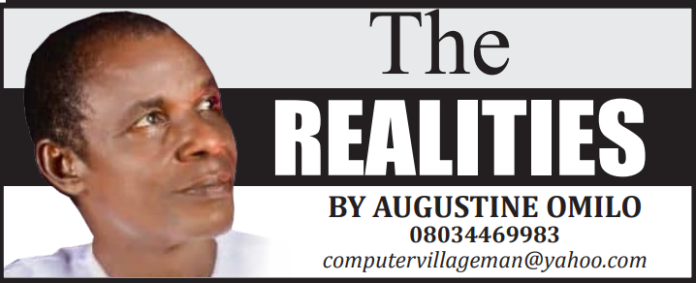As Nigerians gear up towards the 2027 general elections, expectations have become high on the part of the citizens and the intending contestants. Though also skeptical, many are hoping that President Bola Ahmed Tinubu will toe the path of credibility by ensuring that the electoral system is overhauled to allow for acceptable polls’ results. Their demands stem from the perspectives of some people who argue that the last elections of 2023 fell short of being credible.
Only a few of the election results were accepted without validations from the courts. Even after being sworn-in, a lot of elected politicians still faced the uncertainty of possible removal from office by the courts.
One good outcome of the elections however, is that no constituency, from the wards, local governments, state houses of assembly to the presidency slipped into an off-cycle election. All the elected officials are expected to also take their exit on the same day. This is unlike in the
past when states like Anambra, Ekiti, Ondo, Kogi, Edo, Osun and Imo had their election cycles truncated due to court verdicts that sacked earlier winners of their governorship elections as declared by the nation’s electoral umpire, the Independent National Electoral Commission, INEC.
Meanwhile, glimpses of better electoral days ahead have started manifesting in the country’s democratic landscape. In July, this year, the National assembly proposed to amend the 1999 Constitution to allow all elections in Nigeria to be conducted on the same day in 2027. While leading opposition parties — the Peoples Democratic Party, PDP, Labour Party, LP, African Democratic Congress, ADC and New Nigeria People’s Party, NNPP supported the idea, the ruling All Progressives Congress rejected it, warning of dire consequences that may arise as a result of logistics amongst others.
While Nigerians still await the outcome of the bill, the President of the country through his Adviser on communication and strategy, Mr. Bayo Onanuga announced the appointment of Professor Joash Ojo Amupitan (SAN) as the new chairman of the Independent National Electoral Commission, INEC. Though the fate of Amupitan still hangs on his acceptance by the National
Assembly, his choice was unanimously approved by the National Council of State during their last held meeting on the 9th of October, 2025 under the chairmanship of the President.
In what appears as a continuation of efforts towards a credible election in 2027, the National Assembly, in joint meeting held on the 13 th of October, 2025 received a bill seeking to amend electoral act with a view to ensuring that the 2027 elections are held in November, 2026.
The bill which also seeks to mandate presiding officers to transmit the results, including the total number of accredited voters, to the next level of collation both electronically and manually, additionally provides for officers who issue unstamped ballot papers or result sheets to possibly face a one-year jail term or ₦1 million fine.
Stakeholders, including the Independent National Electoral Commission, represented by Prof. Abdullahi Zuru, threw their weight behind the proposed reforms, particularly the call for electronic voting and compulsory e-transmission of results, describing them as critical to
enhancing credibility and reducing post-election disputes.
These positive steps notwithstanding, former President Goodluck Jonathan’s recent emphases on the necessity for strong and ethical leadership in electoral management to avoid a continued flawed electoral system as he advocated for a robust framework to ensure credible elections must be considered as a thought in the right direction.
Credible elections can only be conducted by credible fellows who act as the umpires. In the words of a former Prime Minister of the Soviet Union, Joseph Stalin; “The people who cast the votes don’t decide an election, the people who count the votes do”. It therefore behooves theperson who finally becomes the next INEC chairman to intentionally collaborate with stakeholders in the election project to ensure that his or her state resident commissioners have the right attitude of honesty and integrity deserving of holders of such offices.
Despite the noticed flaws that trailed Professor Mahmood Yakubu’s efforts at conducting credible elections during his two-term tenure, his recent submissions, indicating that technology alone cannot guaranty credible polls must be granted the right deserving audience.
Electoral officials and contestants in elections must continually weigh their actions at the stages of conceptualization. James Freeman Clarke, the American minister and theologian once said; “A politician thinks of the next election, a statesman, of the next generation”. They must therefore keep posterity in focus as they execute the task of organizing or winning elections in the country.


